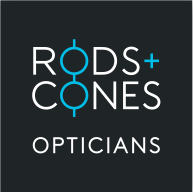
+ BOOK AN EYE TEST
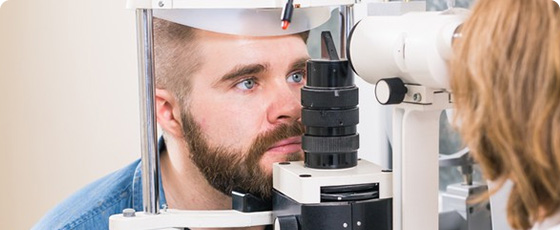
COMPREHENSIVE EYE TEST
It is recommended that everyone has a full eye test at least every 2 years, or sooner if indicated by your optician.
As your vision changes over time it is important to keep up to date with these changes to ensure comfortable, clear vision at all distances.
Checking the health of your eyes is just as important. We use the latest technology to screen, test and monitor all eye conditions including: Macular Degeneration (AMD), Glaucoma, Diabetic Retinopathy or Cataracts.
Early detection and referral to an Ophthalmologist (medical eye specialist) can help preserve your vision for a lifetime.
A typical exam lasts 30 minutes, ensuring enough time to answer any questions or concerns you may have, and discuss the best options to meet your visual needs.
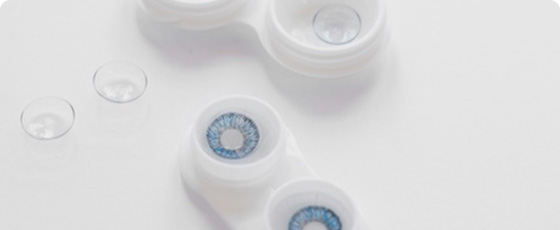
CONTACT LENS ASSESSMENTS
This is an initial eye test for patients that are new to contact lenses and have not worn lenses before.
During the initial consultation the optician will:
- Discuss the best lens to suit your needs (daily or reusable)
- Test the health of your cornea, tear function, and measure the dimensions of the eye.
- Teach you how to insert and remove your contact lenses safely when your test lenses have been selected.
Once you are proficient at contact lens handling, you can take your lenses home to test them, ensuring to follow safety guidelines and eye care instructions from the optician.
You will need a final appointment after the test period to assess how your eye is adapting to the lenses and to make any final adjustment to the lens specification if required.
Once the final Contact Lens Prescription has been determined you can order your lens supply.
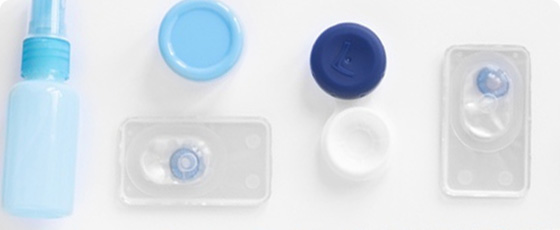
CONTACT LENS AFTERCARE
This is an eye test for existing contact lens wearers that need to renew their Contact Lens Prescription.
You need to have a Contact Lens Aftercare yearly in order to have a valid prescription and purchase contact lenses.
The appointment lasts no more than 20 minutes, and the optician will examine your vision, the health of your cornea, the fit of the lens and discuss any new products that may be available and more suitable to your needs.
Important:
- Wear your contact lenses to your eye test appointment, and they should be in for at 3 hours in advance of the appointment time so they are settled.
- Do not wear the lenses to the appointment if you are having issues with comfort or are concerned about a possible infection.
- Bring your glasses with you, as you can't wear lenses for an hour after if the optician does as fluorescein stain (orange dye to examine the cornea)
- If you wear reusable or monthly lenses, please bring your solution and case to store your lenses.
- A contact lens prescription is largely based on your spectacle prescription, so you will need to have a Comprehensive Eye Test every 2 years also.

DRIVING EYE TEST REPORTS
This is an eye test to ensure your vision meets the required legal standard to obtain an Irish Driving Licence.
It is not a Comprehensive Eye Test, it is a basic screen to determine if you meet the standard, with or without glasses, or not.
Important:
- Please advise if you need a Group 1 (driving licence for cars) or Group 2 (driving licence for trucks) Driving Licence in advance of your eye sight test.
- If you wear glasses for distance (driving or TV) please bring them with you.

VDU REPORTS
This is a Comprehensive Eye Test that also assesses your visual function and needs while specifically using a Visual Display Unit (computer)
Your employer may require a VDU report to determine if you need to wear glasses to use your computer comfortably while at work. Under Health & Safety Guidelines they may be required to cover the cost of the eye test and glasses if required, or give you a contribution towards the cost.
We can provide you with a VDU report, or your employer may have a specific report they need completed.
You should contact your HR department to find out what your employer's policy is.
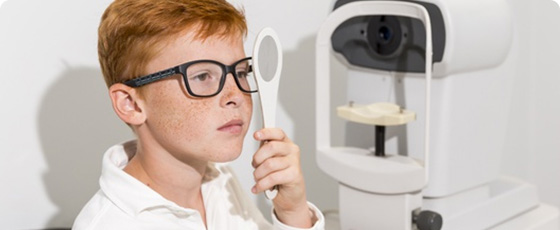
CHILDREN EYE TEST
We examine children as young as 5 years old.
Vision in children can change rapid and a yearly eye test is recommended up to 16 year old.
Uncorrected visual problems in children can lead to learning difficulties and sometimes behavioural problems and confidence issues if they struggle to see the world as other do.
You should not assume your child has no visual problem just because they do not complain. Some children just adapt to a poor level of vision, as they know no other way of seeing the world around them.
Every child should have an eye check yearly, especially if there is a family history (mother or father, siblings or cousins) of:
- Wearing glasses from a young age
- Myopia (short sightedness)
- Hyperopia (long sightedness)
- High Prescription
- Astigmatism
- Squint or turn in the eye, or patching from a young age
- A lazy or weak eye (vision not as good as other eye)
Early eye tests, intervention and referral to a Paediatric Ophthalmologist (eye doctor) if required, can determine the outcome of your child's vision.
